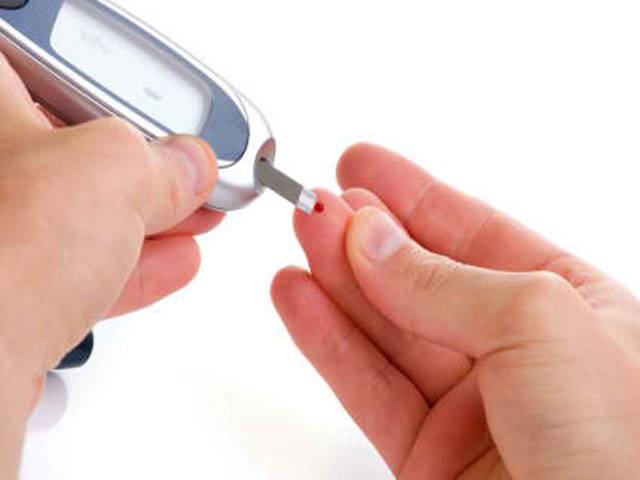KARACHI - As many as 10 percent people are suffering from diabetes in Pakistan. Diabetes is one of the most challenging public health problems of the 21st century and leading cause for morbidity and mortality all over the world.
The world prevalence of diabetes among adults is 8.3 percent, affecting 366 million adults in 2011 which will increase to 9.9 percent and affect 552 million adults by 2030. Natural products have been the source of medicinal agents since time immemorial.
These views were expressed by Dr M Hafizur Rahman, Assistant Professor of Dr Panjwani Centre for Molecular Medicine and Drug Research (PCMD) – Karachi University (KU). He was delivering a lecture on “Diabetes: Prevention and Management through Natural Lifestyle” at the video conferencing hall of Latif Ebrahim Jamal, National Science Information Centre on Saturday. The lecture was jointly organised by Dr Panjwani Centre for Molecular Medicine and Drug Research and Virtual Education Project Pakistan (VEPP) as a part of series of popular lectures for public awareness on common diseases of Pakistan. Health professionals, students, research scholars, NGO representatives and general public attended the lecture.
Dr Rahman said Asia was the epicentre of diabetes and home of 60 percent of the world’s diabetic population. “This epidemic is driven by consumption of more carbohydrates, lack of exercise, stomach full eating, eating at irregular hours, intake of fatty and junk foods, rapid urbanisation, mechanisation, computerisation, nutritional transition, late night eating, late night sleeping, more television watching, maternal hyperglycemia, maternal under-nutrition, malnutrition, depression and environmental pollutants.”
This large number of diabetic subjects of Pakistan gradually loses their efficiency and potency, causes direct and indirect burden to the family, to the society and ultimately to the country. Prevention and control of diabetes is a key issue because of the huge premature morbidity and mortality associated with diabetes, he said.
Talking about the role of natural products in the primary healthcare, he said that natural products had been the source of medicinal agents since times immemorial. Today they continue to play a dominant role in the primary health care of about 80 percent of the world’s population. Natural products, and medicinal agents derived from natural products are also an essential feature in the healthcare systems of the remaining 20 percent of the population of developed countries.
Dr Rahman said, “Natural products once served as the source of all drugs and even today more than 25 percent of all drugs in clinical use having a natural product origin. In developing countries, many people use different natural products for control and/or management of many diseases including diabetes.
Almost 70 percent population lives in rural area of these countries and 70 percent of them rely on traditional medicine as a primary healthcare.
Using a healthy lifestyle, taking good food, doing regular exercise and through ‘Natural Life Style’ this lifestyle disease can be managed.”
Tuesday, April 16, 2024
10pc Pakistanis suffer from diabetes

Pakistan, IMF discussing new multi-billion-dollar program, says Finance Minister Aurangzeb
11:09 AM | April 16, 2024
LESCO ‘bars’ officers from appearing before FIA in overbilling probe
10:49 AM | April 16, 2024
Aleem Khan, Kamran Tessori discuss matters of mutual interests
10:40 AM | April 16, 2024
Global brands facing challenge from local contenders in Pakistan's FMCG market
10:24 AM | April 16, 2024
Israeli Air Force finalizes preparations for possible attack on Iran
8:21 AM | April 16, 2024
Political Reconciliation
April 16, 2024
Pricing Pressures
April 16, 2024
Western Hypocrisy
April 16, 2024
Policing Reforms
April 15, 2024
Storm Safety
April 15, 2024
Democratic harmony
April 16, 2024
Digital dilemma
April 16, 2024
Classroom crisis
April 16, 2024
Bridging gaps
April 16, 2024
Suicide awareness
April 15, 2024
ePaper - Nawaiwaqt
Advertisement
Nawaiwaqt Group | Copyright © 2024





